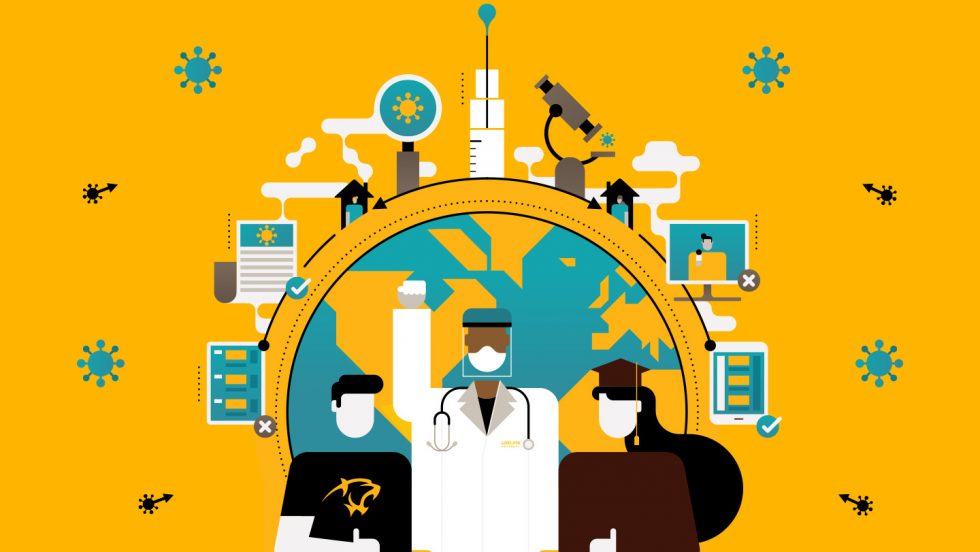Public health is a critical field that impacts every aspect of our lives. From preventing diseases to promoting healthy lifestyles, public health professionals play a vital role in ensuring the well-being of communities. However, the field faces numerous challenges, from emerging infectious diseases to the growing burden of chronic illnesses. In this comprehensive article, we will explore the most pressing public health challenges and the solutions that can address them. We will also highlight how Al Mithaq Institute’s specialized courses can equip you with the knowledge and skills needed to tackle these challenges and make a meaningful impact in the field of public health.
Table of Contents
- Introduction to Public Health Challenges
- Emerging Infectious Diseases
- Chronic Diseases and Lifestyle-Related Health Issues
- Mental Health: The Silent Epidemic
- Health Inequities and Access to Care
- Environmental Health Challenges
- The Role of Technology in Public Health
- Public Health Education and Training
- Conclusion: The Future of Public Health
1. Introduction to Public Health Challenges
Public health is a multidisciplinary field that focuses on improving the health of populations through prevention, education, and policy interventions. While significant progress has been made in areas such as vaccination and disease eradication, new challenges continue to emerge. These challenges are often complex and interconnected, requiring a holistic approach to address them effectively.
At Al Mithaq Institute, we understand the importance of equipping public health professionals with the knowledge and skills needed to tackle these challenges. Our courses are designed to provide a comprehensive understanding of public health issues and the tools to develop effective solutions. Whether you are a seasoned professional or just starting your career in public health, our programs can help you make a meaningful impact.
2. Emerging Infectious Diseases
The Rise of New Pathogens
One of the most significant public health challenges is the emergence of new infectious diseases. Pathogens such as COVID-19, Ebola, and Zika have highlighted the vulnerability of global health systems to new threats. The rapid spread of these diseases can have devastating consequences, both in terms of human lives and economic impact.
The Role of Globalization in Disease Spread
Globalization has facilitated the rapid movement of people, goods, and services across borders. While this has many benefits, it also means that infectious diseases can spread more quickly than ever before. An outbreak in one part of the world can quickly become a global pandemic, as we have seen with COVID-19.
Solutions: Surveillance, Vaccination, and Public Awareness
To combat emerging infectious diseases, public health professionals must focus on three key areas: surveillance, vaccination, and public awareness. Surveillance systems can help detect outbreaks early, allowing for a rapid response. Vaccination programs are essential for preventing the spread of infectious diseases, while public awareness campaigns can educate people about the importance of hygiene and preventive measures.
At Al Mithaq Institute, we offer courses that cover these critical areas. Our Diploma in Public Health and Epidemiology provides students with the knowledge and skills needed to design and implement effective surveillance systems. Additionally, our Diploma in Health Education and Promotion focuses on developing public awareness campaigns that can help prevent the spread of infectious diseases.
3. Chronic Diseases and Lifestyle-Related Health Issues
The Growing Burden of Chronic Diseases
Chronic diseases such as heart disease, diabetes, and cancer are among the leading causes of death worldwide. These diseases are often linked to lifestyle factors such as poor diet, lack of exercise, and smoking. The burden of chronic diseases is expected to increase as populations age and lifestyles become more sedentary.
The Role of Diet, Exercise, and Mental Health
Preventing chronic diseases requires a focus on lifestyle factors. A healthy diet, regular exercise, and good mental health are essential for reducing the risk of chronic diseases. Public health professionals play a crucial role in promoting these behaviors through education and policy interventions.
Solutions: Preventive Care and Health Education
Preventive care and health education are key to reducing the burden of chronic diseases. Public health professionals can develop programs that encourage healthy behaviors and provide access to preventive services such as screenings and vaccinations.
At Al Mithaq Institute, we offer a Diploma in Nutrition and Public Health that focuses on the role of diet in preventing chronic diseases. Our Diploma in Health and Wellness Coaching equips students with the skills needed to promote healthy lifestyles and prevent chronic diseases.
4. Mental Health: The Silent Epidemic
The Stigma Surrounding Mental Health
Mental health is often referred to as the "silent epidemic" because of the stigma surrounding it. Many people with mental health conditions do not seek help due to fear of discrimination or lack of access to care. This can lead to severe consequences, including suicide and substance abuse.
The Impact of COVID-19 on Mental Health
The COVID-19 pandemic has exacerbated mental health issues, with many people experiencing increased levels of stress, anxiety, and depression. The pandemic has also highlighted the need for better mental health services and support.
Solutions: Integrating Mental Health into Public Health Strategies
Integrating mental health into public health strategies is essential for addressing this silent epidemic. Public health professionals can develop programs that promote mental health and provide access to care for those in need.
At Al Mithaq Institute, we offer a Diploma in Mental Health and Counseling that prepares students to address mental health challenges. Our Diploma in Public Health and Behavioral Sciences focuses on the intersection of mental health and public health, providing students with the tools to develop effective interventions.
5. Health Inequities and Access to Care
Disparities in Health Outcomes
Health inequities refer to differences in health outcomes between different populations. These disparities are often linked to social determinants of health, such as income, education, and access to healthcare. Addressing health inequities is essential for achieving health equity and improving overall population health.
Barriers to Accessing Healthcare
Many people face barriers to accessing healthcare, including cost, lack of insurance, and geographic location. These barriers can prevent people from receiving the care they need, leading to worse health outcomes.
Solutions: Policy Changes and Community-Based Interventions
Policy changes and community-based interventions are key to addressing health inequities. Public health professionals can advocate for policies that improve access to care and develop programs that target underserved populations.
At Al Mithaq Institute, we offer a Diploma in Health Policy and Management that prepares students to address health inequities through policy and program development. Our Diploma in Community Health focuses on developing community-based interventions that improve access to care.
6. Environmental Health Challenges
Climate Change and Its Impact on Health
Climate change is one of the most significant environmental health challenges of our time. Rising temperatures, extreme weather events, and air pollution can have severe impacts on health, including increased rates of respiratory diseases, heat-related illnesses, and vector-borne diseases.
Air and Water Pollution
Air and water pollution are major environmental health challenges that affect millions of people worldwide. Exposure to polluted air and water can lead to a range of health problems, including respiratory diseases, cardiovascular diseases, and cancer.
Solutions: Sustainable Practices and Environmental Policies
Sustainable practices and environmental policies are essential for addressing environmental health challenges. Public health professionals can advocate for policies that reduce pollution and promote sustainable practices.
At Al Mithaq Institute, we offer a Diploma in Environmental Health that focuses on the impact of environmental factors on health. Our Diploma in Sustainable Development and Public Health prepares students to develop and implement sustainable practices that improve health outcomes.
7. The Role of Technology in Public Health
Digital Health and Telemedicine
Technology is playing an increasingly important role in public health. Digital health tools, such as telemedicine, can improve access to care and make healthcare more efficient. Telemedicine allows patients to receive care remotely, reducing the need for in-person visits and improving access to care for those in remote areas.
Big Data and Predictive Analytics
Big data and predictive analytics are transforming public health by enabling more accurate predictions of disease outbreaks and better targeting of interventions. Public health professionals can use data to identify trends and develop more effective strategies for preventing and controlling diseases.
Solutions: Leveraging Technology for Better Health Outcomes
Leveraging technology is essential for improving health outcomes. Public health professionals can use digital health tools and data analytics to develop more effective interventions and improve access to care.
At Al Mithaq Institute, we offer a Diploma in Health Informatics that focuses on the use of technology in public health. Our Diploma in Data Analysis and Public Health prepares students to use data analytics to improve health outcomes.
8. Public Health Education and Training
The Importance of Continuous Learning in Public Health
Public health is a constantly evolving field, and continuous learning is essential for staying up-to-date with the latest developments. Public health professionals must be prepared to adapt to new challenges and develop innovative solutions.
How Al Mithaq Institute Prepares You for Public Health Challenges
At Al Mithaq Institute, we are committed to providing high-quality education and training for public health professionals. Our courses are designed to equip students with the knowledge and skills needed to address the most pressing public health challenges. Whether you are interested in infectious diseases, chronic diseases, mental health, or environmental health, we have a program that can help you achieve your goals.
Courses Offered by Al Mithaq Institute in Public Health
- Diploma in Public Health and Epidemiology
- Diploma in Health Education and Promotion
- Diploma in Nutrition and Public Health
- Diploma in Health and Wellness Coaching
- Diploma in Mental Health and Counseling
- Diploma in Public Health and Behavioral Sciences
- Diploma in Health Policy and Management
- Diploma in Community Health
- Diploma in Environmental Health
- Diploma in Sustainable Development and Public Health
- Diploma in Health Informatics
- Diploma in Data Analysis and Public Health
9. Conclusion: The Future of Public Health
The field of public health is facing numerous challenges, from emerging infectious diseases to the growing burden of chronic illnesses. However, with the right knowledge and skills, public health professionals can develop effective solutions to these challenges. At Al Mithaq Institute, we are committed to providing high-quality education and training that prepares you to make a meaningful impact in the field of public health.
Whether you are interested in preventing infectious diseases, promoting healthy lifestyles, or addressing health inequities, our courses can help you achieve your goals. Visit our website at https://almithaqinstitute.com/ to learn more about our programs and how we can help you advance your career in public health.
Are you ready to take the next step in your public health career?
Enroll in one of Al Mithaq Institute’s specialized courses today and gain the knowledge and skills needed to tackle the most pressing public health challenges. Visit our courses page to explore our offerings and start your journey toward a healthier future.
For more information, feel free to contact us or visit our about us page to learn more about our mission and values. Together, we can create a healthier world for everyone.







